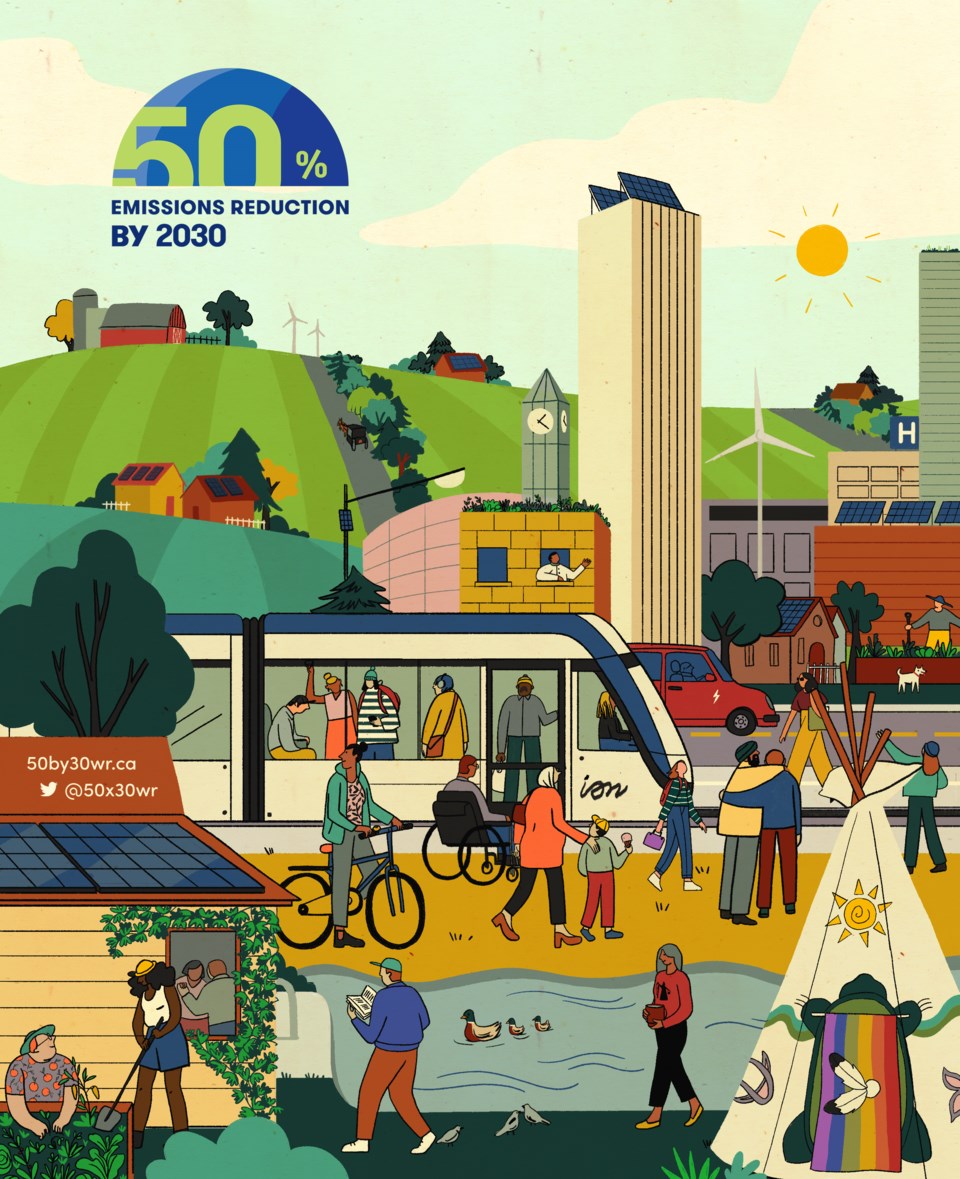One local group believes bold science-based actions grounded in social justice is needed now that Region of Waterloo councils have declared a climate emergency.
Kai Reimer-Watts, co-organizer of the grassroots group 50by30WR, told CambridgeToday he and his peers endorse the TransformWR draft plan produced by ClimateActionWR collaborative that is comprised of the Region of Waterloo and its municipalities, Reep Green Solutions, and Sustainable Waterloo Region. However, 50by30WR sets a more ambitious target of reducing emissions and fossil fuel consumption to 50 per cent by 2030.
"The pandemic is a reminder that we need to take global crises seriously to protect the well-being of our communities and our economies," he said. "The climate crisis is a massive crisis that deserves our collective response. That's what this campaign emerged from and why we're now going to local municipalities and building up the region itself."
It's clear that the situation is urgent, said Reimer-Watts.
"However, as we've seen with the COVID pandemic, bold science-based actions grounded in social justice is needed," he said. "If we take that bold action, it can revitalize our communities. It can improve quality of life."
The TransformWR report, which is being presented at the June 8 council meeting, presents six calls to action to be implemented for cutting emissions by 80 per cent by 2050.
- By 2050, most trips are taken using active transportation, with the support of a robust public transit system.
- By 2050, remaining personal and commercial vehicles are zero-emissions vehicles.
- By 2050, businesses and homes no longer use fossil fuels for space heating and cooling, and hot water heating.
- By 2050, Waterloo Region uses less, wastes less, and no longer disposes organic matter in landfills.
- By 2050, Waterloo Region has a thriving local food system built on local farming and food production and processing that feeds much of our community.
- By 2050, Waterloo Region has leveraged reducing GHG emissions to increase equity, prosperity, and resiliency for all.
In response, city staff are bringing forward a report that recommends council receive the strategy and endorse it. With that, the report also recommends council direct staff to develop detailed plans to implement the strategy.
In addition to this, Coun. Scott Hamilton is bringing forward a motion around placemaking, which is defined as a multi-faceted approach to the planning, design and management of public spaces, in each Cambridge core area to embrace novel, unique, and progressive ways of incorporating the river(s), local businesses, and physical activities, such as cycling and walking paths, into the landscape.
"Cambridge and WR generally has recently taken tremendous steps and advancements in toward fighting climate change and lowering greenhouse gas emission but I'd really like to strive for council to hit a 50by30 target," he told CambridgeToday. "It's fully in line with the 50by80 plan that council previously endorsed and the global scientific consensus.
"If we really want to fight climate change and have a shot at keeping the global temperature at 1.5 degree Celsius warming, we have to act and we have to act quickly," Hamilton said.
His motion, he said, would take what's already being proposed in TransformWR and speed it up.
"It is ambitious but I think it's doable," Hamilton added.
Samantha Tremmel, plan manager, ClimateActionWR, emailed some specific ways Cambridge residents, business, and the municipality can implement the strategy.
Actions residents can take, she wrote, include can commit to walking, cycling, or using public transit for destinations within 5 kilometres of their homes. They could consider replacing existing vehicles with electric ones when it needs to be replaces. Have professional home energy audits conducted to learn how to make their homes more energy efficient.
Similarly, Tremmel wrote, some options for business include developing work from home policies (where applicable). Replace fleet vehicles with electric alternatives. Switch building’s heating systems from fossil fuels to electric. Evaluating manufacturing and other processes for ways to rescue waste, or reuse it elsewhere.
The municipality, she wrote, can plan a network of active transportation corridors to provide high-volume priority travel for walking, cycling, and rolling to key destinations. Require all new residential parking spaces, and a portion of new non-residential parking spaces, to be constructed to accommodate electric vehicle charging stations. Develop building standards to encourage and support zero-carbon development of all new buildings.
Reimer-Watts said he believed these steps an help cities build back better.
"At a time when so many people are struggling with loss of work and generally a hard year, one of the central messages that needs to come through is that climate action can and will be the way that communities build back better and prepare to be more resilient and prosper in the 21st century economy," he said.
Hamilton said if his motion passes, the next steps would be to work, not just at city council, but with the region, community groups, the province and the federal government to lobby for funds and bring more attention to these issues to get some entrenched movement.
The agenda for the Tuesday meeting is available online. The meeting begins at 5 p.m. and will be streamed live via the city's YouTube channel.
